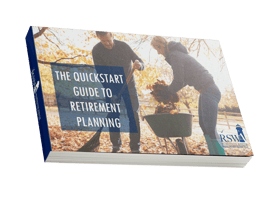Fitch Debt Downgrade: Although a smaller ratings agency compared to S&P and Moody’s, Fitch came out and downgraded US government debt to AA+ from AAA. Fitch cited growing fiscal imbalances related to tax cuts, increased government spending, and continued political gridlock. The downgrade comes after the debt ceiling standoff earlier this year and amidst news of a potential government shutdown if lawmakers cannot pass a budget by September 30th. Markets largely brushed off the downgrade news, with a slight rise to the 10-year yield. In 2011, when S&P downgraded the US debt to AA+, yields actually fell as investors view US debt as a safe haven. Fitch US Rating Cut | Bloomberg
US Rate Cuts – Less Bite on US Households: As we wrote about in our newsletter last week, recent Federal Reserve rate increases have brought down inflation and the US economy has remained resilient as rate hikes have a lagged effect on the economy. Some believe the US economy is less interest rate sensitive compared to previous decades. Overall, American households have reduced household debt since the 2008 Financial Crisis. From 2007 to 2023, US household debt as a percentage of GDP fell from 101% to 77%, and debt service ratios (household debt payments divided by total disposable income) fell from 13.2% of disposable income in 2007 to 9.6% in 2023. With the Federal Reserve increasing interest rates by 5% in the last 18 months, household debt servicing costs have only increased by 1.5% through the first quarter of 2023. US Government debt has increased from 64% of GDP to 120% from 2007 to 2022, post-financial crisis and pandemic, and has led to an increase in debt service payments with higher interest rates. Americans Have Deleveraged | Barron's
American consumers uniquely also have access to fixed rate loans, typically 30-year fixed rate mortgages, unlike countries like England where mortgages are fixed for a short amount of time and then adjust to current interest rates. The effect on England’s economy with recent interest rate hikes by the Bank of England will be significant, as mortgage holders are looking at interest rates on debt going from 2% to 6%. Britain’s Mortgages | The New York Times
FedNow: In July, the Federal Reserve launched FedNow, an instant payment system for banks. Currently payments take days to get between banks, with delays for weekends and holidays or time for checks to clear. The new system will operate similarly to Venmo but within the banking system. This will allow for instant payments between consumers and lenders or between businesses for services and potentially even payroll. The Fed says the system is meant to support instant payment systems like Venmo and Zelle, and not replace them. What it means for me is that age-old ‘check is in the mail’ excuse will have to be adapted. FedNow FAQs: What Is It Really? | Forbes Advisor
Financial Planning/Investment Strategy Corner:
I Bond Considerations: I Bonds are US Government issued bonds with interest rates indexed to inflation. The bonds cannot be purchased by investment advisors, so investors need to buy them directly at Treasurydirect.gov. Every year investors are allowed to invest $10,000 each and with inflation high in 2021 and 2022, the bonds drew significant interest as yields on I Bonds reached a record of 9.62% in November 2022. With inflation moderating, yields on I Bonds are adjusting lower. Coupled with the Federal Reserve raising short-term interest rates, holding I Bonds may not be worth it for investors. There are a few rules to consider before redeeming:
- You must hold the I Bond for at least one year before you can redeem it.
- If you redeem within 5 years of buying the I Bond, you will give up the last 3 months of interest as a penalty.
- I Bond interest rates are adjusted every six months in May and November, however, the owner’s interest rate will not be adjusted until the month it was bought (for example if the rate was adjusted lower in May 2023, and you bought the I Bond in September 2022, your yield adjustment will not take effect until September 2023).
As always if you have any questions regarding what to consider before redeeming your I Bond, contact your advisor. Should I Buy I Bonds? | Bloomberg
Quick Hits:
- Here at RSWA, Greg’s wife and son are in Ethiopia visiting family and his son is missing his comfort foods of Chinese food and Hannaford’s fried chicken. I recently made the potato salad my mother made growing up, with fresh cucumbers to add a crunch. This looked like a good list of summer comfort foods to me with all of the zucchini ideas: Best Summer Comfort Foods | The Kitchn
- I wonder if the Galactic Senate will hold a hearing about this one day: Lunar Codex: digitized works of 30,000 artists to be archived on moon
- Can you pass this Bird test? I thought most were just hungry: Can You Understand Bird?
- After a slow rainy start to summer, hopefully your garden is producing fresh tomatoes: Tomato Season Is the Best Season. These Recipes Prove It.
RSWA Summer Event: As a reminder, our Portland summer cruise event is coming up on Thursday, August 17th with the boat leaving at 5:00 PM. Invites have gone out, but if you didn’t receive one and want to go, reach out to us. Everyone is certainly welcome to bring additional guests. If you have already responded and plan to bring additional guests, please let us know as soon as you can.
Quote: “I’ve never been someone who’s very prone to boredom. I don’t know, boredom seems like something you should grow out of at about 15 or 16. There’s so much that needs to be done.” – Jason Isbell (I attended a great show of Jason Isbell and the 400 Unit in Boston last week – a great showman).
